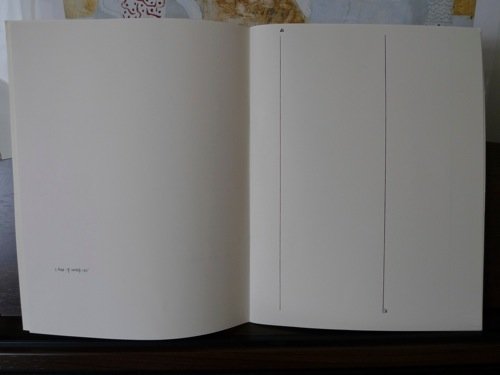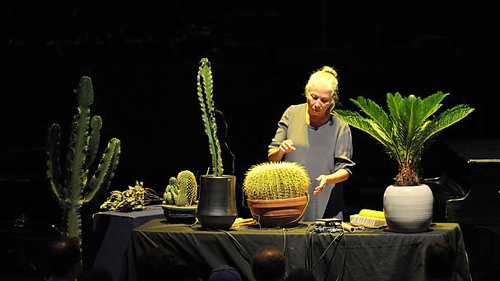Today (September 5), John Cage would have been 100 years old. A few weeks ago, I went to the John Cage Centenary Celebration at the BBC Proms. Cage is probably best know for 4′33″, his infamous 1952 piece consisting of four minutes and thirty-three seconds of silence (originally in three movements — although he eventually decided to make the structure of the piece even less prescribed). That wasn’t performed the night I was at the proms, but a few evenings before by the London Sinfonietta, so I listened on the radio, and tried to use the opportunity to attend to the sounds around me: the movements of my neighbours, the cycling of my refrigerator, the cars on the road. (Allan Kozinn, who wrote Cage’s NY Times obituary 20 years ago, writes about an impromptu performance he conducted on an A-Train Subway car.)
Last year, some friends gave me an excellent birthday present: the score to 4′33″ in Cage’s proportional notation: 1 page = 7 inches = 56 seconds”: spare and beautiful on paper, reminding us that Cage was a visual artist as well as a composer:

The highlight of the Prom dedicated to Cage was “Branches“, for amplified cactuses and plants. This sounds like a joke, and like much of Cage’s work, it is indeed intentionally playful, and probably as much performance art as music. The players were scattered around the Albert Hall, on stage, in the central pit, in boxes among the audience, and their succulents, leaves and water bowls were set with high-gain microphones, and arranged by consultation with the I Ching, one of Cage’s favourite ways of introducing randomness into his works. The result was beautiful, and silly, and I’ll never look at a spiny cactus the same way again.

Robyn Schulkowsky leads John Cage’s Branches for amplified cactuses and plants at the BBC Proms. ©BBC/Chris Christodoulou
So now, any classical concert that doesn’t feature a smattering of plant life will feel somewhat staid, but nonetheless I am headed back tonight for John Adams‘ opera “Nixon in China“. I’ve managed to see a couple of his other operas, The Death of Klinghoffer and Doctor Atomic, over the last few years, and this was his first. This semi-staged version will be conducted by Adams himself — what it lacks in sets and costumes will perhaps be made up for in other sorts of excitement. But probably not in plants.